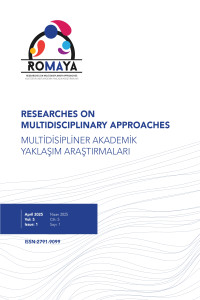Abstract
As a result of technical improvements, modern marketing strategies are changing, and digitalization is becoming a crucial strategic tool, especially in technologically and environmentally sensitive sectors like tourism. To find current trends, gaps, and conceptual frameworks in the domains of digital marketing and tourism marketing, this study uses bibliometric analysis. The Web of Science and Scopus databases were searched using the keywords “tourism marketing” and “digital marketing” for the years 2020–2024, yielding a total of 656 English-language documents. Using conceptual and thematic structure maps, the study effectively illustrates the main themes and links between these two fields. Popular “motor themes” in the literature, including “sustainable
tourism,” “digital transformation,” and “social media,” are highlighted by thematic maps. They also emphasize less-known but intriguing subjects, such “digital literacy” and “digital nomadism.” Conceptual structural maps highlight important gaps in the research by illuminating connections between more general theme clusters like digitization, consumer behavior, and experience tourism. Research gaps and possible areas of investigation are concretized by the findings, which make it easier to visualize scholarly trends in the fields of digital marketing and tourism marketing. These findings advance knowledge of the effects of digitization on the travel and tourism industry in both scholarly and real-world settings. This work provides a fresh addition to the literature by employing visualization techniques and carrying out a thorough examination of theme linkages.
References
- Ansen, E. N. & Firat, A. (2009). Electronic Marketing in Tourism Enterprises: The Case of Antalya Province “Group A Travel Agencies”. Journal of Entrepreneurship and Development, 4(2): 117-134.
- Aria, M., & Cuccurullo, C. (2017). Bibliometrix: An R-tool for comprehensive science mapping analysis. Journal of Informetrics, 11(4), 959-975.
- Buhalis, D. (1998). Strategic Use of Information Technologies in the Tourism Industry, Tourism Management, 19(5): 409-421.
Details
| Primary Language | English |
|---|---|
| Subjects | Tourism (Other) |
| Journal Section | 2025 5/1 (April) |
| Authors | |
| Publication Date | April 22, 2025 |
| Submission Date | November 26, 2024 |
| Acceptance Date | December 25, 2024 |
| Published in Issue | Year 2025 Volume: 5 Issue: 1 |


